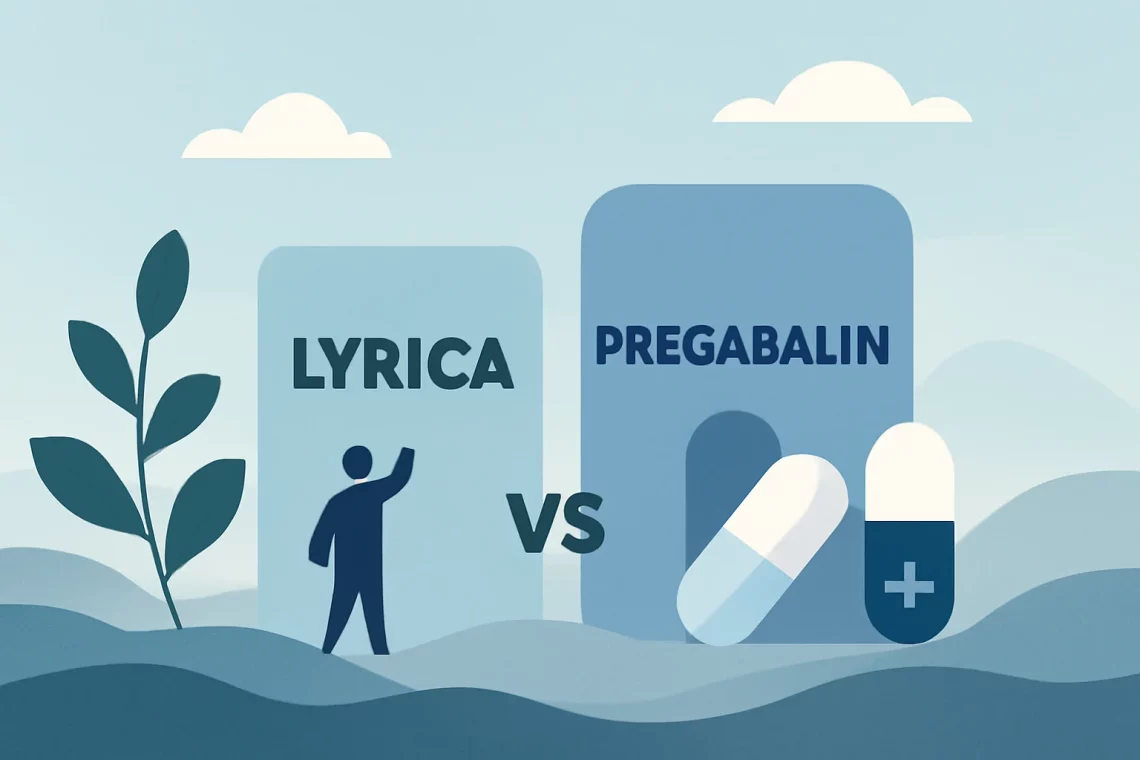
Lyrica vs Pregabalin: Understanding the Differences and Uses
Lyrica and pregabalin are terms that often arise in discussions surrounding the treatment of various neurological and chronic pain conditions. As both a brand name and the generic name of the same medication, pregabalin is widely recognized for its role in managing conditions such as epilepsy, fibromyalgia, and neuropathic pain. The drug is classified as an anticonvulsant and works by modulating neurotransmitter release in the brain, which can help alleviate symptoms in patients suffering from these debilitating conditions.
The distinction between Lyrica and pregabalin is especially relevant in the context of prescription medication, where patients may encounter both terms during their treatment journey. While the active ingredient remains the same, the differences in branding, availability, and cost can influence patient choices and experiences. Understanding these nuances can empower patients to make informed decisions about their treatment options. As the landscape of medication continues to evolve, awareness of the implications of choosing between brand-name and generic medications remains crucial for patients, healthcare providers, and caregivers alike.
Understanding Pregabalin
Pregabalin is an anticonvulsant medication primarily used to treat conditions like epilepsy, neuropathic pain, and generalized anxiety disorder. It is important to note that the drug functions by inhibiting certain neurotransmitters in the brain, which helps to stabilize electrical activity and reduce the perception of pain. Pregabalin is particularly effective for neuropathic pain, which is often characterized by a burning or shooting sensation due to nerve damage.
One of the key benefits of pregabalin is its ability to provide relief from chronic pain conditions that have been resistant to other treatments. Patients suffering from conditions like diabetic neuropathy or postherpetic neuralgia often find significant improvement in their quality of life when using pregabalin. Unlike traditional pain medications, which may have a higher risk of addiction or dependency, pregabalin is generally considered to have a lower potential for abuse, making it a more suitable option for long-term management.
Pregabalin is typically prescribed in capsule form and can be taken with or without food. Dosage varies based on individual patient needs, and it is essential for patients to follow their healthcare provider’s instructions closely. Common side effects may include dizziness, drowsiness, and dry mouth, but these effects often diminish as the body adjusts to the medication. It is crucial for patients to discuss any concerns or side effects with their healthcare provider to find the most effective and tolerable treatment plan.
Additionally, patients should be aware of the importance of not abruptly discontinuing pregabalin without consulting their healthcare provider. Stopping the medication suddenly can lead to withdrawal symptoms or a resurgence of the underlying condition being treated. For this reason, a gradual tapering off of the medication is often recommended when discontinuation is necessary.
The Role of Lyrica in Treatment
Lyrica is the brand name for pregabalin, and its introduction to the market marked a significant advancement in the treatment of various neurological and pain-related conditions. As a branded medication, Lyrica has undergone extensive clinical trials to establish its efficacy and safety profile, which has contributed to its widespread acceptance among healthcare professionals.
One of the primary reasons healthcare providers may opt to prescribe Lyrica over generic pregabalin is patient familiarity and trust in brand-name medications. Some patients may feel more secure using a well-known brand, believing it to be more reliable than its generic counterpart. This perception can influence adherence to treatment, as patients are more likely to continue taking a medication they trust.
Lyrica is extensively studied and has shown positive results in managing not just neuropathic pain but also conditions like fibromyalgia, which is characterized by widespread musculoskeletal pain. Patients seeking relief from fibromyalgia often find that Lyrica provides a unique benefit by addressing both pain and accompanying symptoms such as sleep disturbances and anxiety.
While Lyrica is effective for many, it is essential to consider the potential downsides of brand-name medications, including higher costs. Patients may find that their insurance plans cover generic pregabalin more favorably than the brand-name version, leading to increased out-of-pocket expenses. This financial consideration is crucial for patients managing long-term treatment plans, as the cost of medication can significantly impact adherence to prescribed regimens.
In summary, Lyrica plays a vital role in the treatment landscape for various conditions, but patients must weigh the benefits against potential costs. Consulting with healthcare providers can help patients navigate these options and determine the most suitable choice for their individual circumstances.
Comparative Efficacy of Lyrica and Pregabalin
When comparing Lyrica and pregabalin, it is essential to understand that both terms refer to the same active ingredient. However, the perception of efficacy can differ based on individual experiences and the context in which the medications are used. Many patients report that they achieve similar therapeutic outcomes with both Lyrica and generic pregabalin, which is supported by numerous studies indicating equivalent efficacy between the two.
Clinical trials have consistently demonstrated that pregabalin effectively reduces pain associated with neuropathic conditions and improves overall patient functioning. The mechanism of action for both Lyrica and pregabalin remains the same, targeting the alpha-2-delta subunit of voltage-gated calcium channels in the central nervous system. This action leads to a decrease in the release of excitatory neurotransmitters, ultimately resulting in reduced pain perception.
However, patient experiences can vary based on factors such as personal health history, concurrent medications, and individual responses to treatment. Some patients may perceive a difference in efficacy between the brand-name and generic versions, potentially due to inactive ingredients or variations in absorption rates. These subjective experiences emphasize the importance of personalized treatment approaches, where healthcare providers consider individual patient needs and preferences when prescribing medication.
Additionally, adherence to treatment can play a significant role in perceived efficacy. Patients who feel confident in their medication, whether it be Lyrica or pregabalin, are more likely to adhere to their prescribed regimen. It is crucial for healthcare providers to foster open communication with patients, addressing any concerns regarding the effectiveness of their treatment and making necessary adjustments as needed.
Ultimately, the choice between Lyrica and pregabalin should be guided by a thorough discussion between patients and their healthcare providers, considering both clinical evidence and individual patient preferences.
Cost Considerations: Lyrica vs. Pregabalin
One of the most significant differences between Lyrica and pregabalin lies in their cost. As a brand-name medication, Lyrica typically comes with a higher price tag compared to its generic counterpart, pregabalin. This cost differential can be a critical factor for many patients, especially those managing chronic conditions that require long-term treatment.
Insurance coverage can vary widely, with many plans favoring generic medications over brand-name drugs. Patients may find that their copayment for pregabalin is significantly lower than for Lyrica, making it an economically more viable option. It is advisable for patients to review their insurance policies and discuss cost concerns with their healthcare providers to identify the most affordable and effective treatment options.
In addition to direct costs, the financial implications of long-term medication use should be considered. Chronic pain management often requires ongoing treatment, and the cumulative costs of brand-name medications can add up over time. Patients may benefit from exploring patient assistance programs or discount cards offered by pharmaceutical companies, which can help mitigate the financial burden associated with brand-name drugs.
Ultimately, while the efficacy of Lyrica and pregabalin may be similar, the cost considerations can significantly influence patient choices. By weighing factors such as insurance coverage, out-of-pocket expenses, and individual treatment needs, patients can make informed decisions that align with their financial and health goals.
In conclusion, understanding the distinctions between Lyrica and pregabalin – including their efficacy, cost, and patient experiences – is crucial for making informed treatment choices. It is always advisable to consult with a healthcare provider to determine the best medication for individual health needs.
**Disclaimer:** This article is not intended as medical advice. For health-related issues, always consult a healthcare professional.




